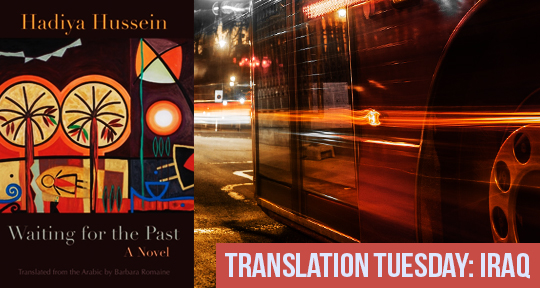Hadiya Hussein’s poignant 2017 novel plunges readers into a haunting and powerful story of resilience. Set at the end of Saddam Hussein’s brutal reign, the novel follows Narjis, a young Iraqi woman, on her quest to discover what has become of the man she loves. Yusef, suspected by the regime of being a dissident, has disappeared—presumably either imprisoned or executed. On her journey, Narjis receives shelter from a Kurdish family who welcome her into their home and meets Umm Hani, an older woman who is searching for her long-lost son. Together they form a bond, and Narjis comes to understand the depth of loss and grief of those around her. At the same time, she is introduced to the warm hospitality of the Kurds, settling into their everyday lives, and embracing their customs. Barbara Romaine’s translation skillfully renders this complex, layered story, giving readers a stark yet beautiful portrait of contemporary Iraq. Asymptote is proud to partner with Syracuse University Press to present the following excerpt.
“To get there I’ll open a thousand doors.”
So Narjis said to herself, having sealed her lips, and from that time forward she began planning her escape, preparing for the long and exhausting journey: the journey that was to open for her other, unknown doors, confronting her with a life she had never yet known.
She was not entirely sure what would be the consequence of such an undertaking, nor could she have grasped it at the moment she decided to flee—it was all clouded. But she was driven by the forces of love and fear simultaneously, and she was determined to make the attempt, to try to achieve something better than just sitting and waiting for the final moment: death at the hands of forces outside one’s own control. When the time came, she packed a medium-sized suitcase, into which she put three shirts, a suit jacket, two skirts, two nightgowns, a towel, various toiletries including a toothbrush and toothpaste, and some underwear. She buttoned her blouse, then brushed her hair in front of the mirror and put it up in a ponytail, staring at her face, which was set with determination in those crucial moments, between one life on which she had closed the door and a different one she had not yet tasted. It might taste of honey or of bitter gourd, but she was prepared to swallow bitter gourd, or even poison, rather than stay as she was, prisoner of a barren life, stalked by fear from every direction. She had already sold her mother’s house—abandoned since she had inherited it—in order to finance her perilous journey. She had paid the sum upon which she and Mohsin al-Alwan had agreed, and would pay still more as circumstances required, in order that she might reach her destination. But why was Narjis fleeing, and where did she mean to end up? Where did she go, and what was it that she sought?

